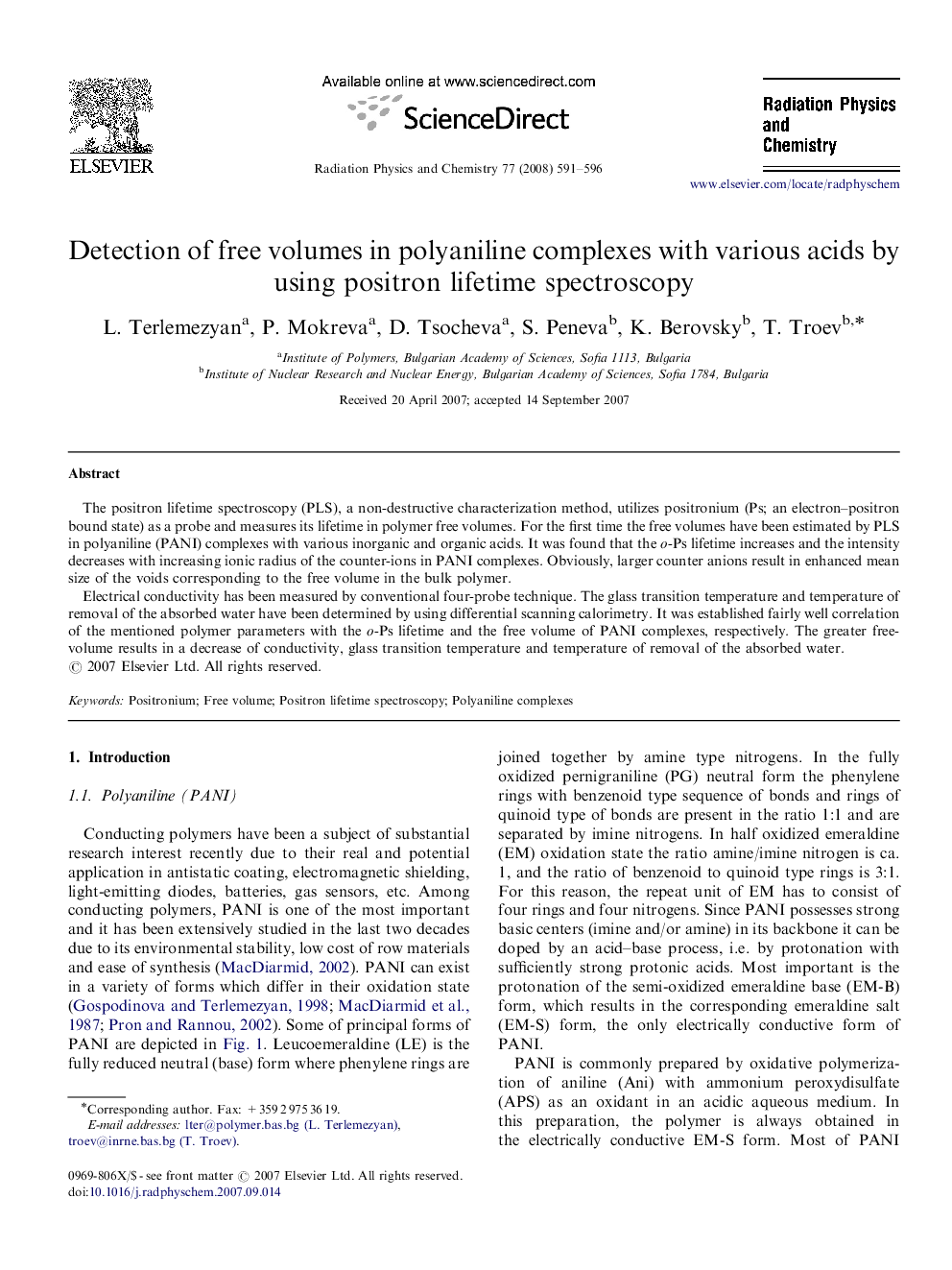| Article ID | Journal | Published Year | Pages | File Type |
|---|---|---|---|---|
| 1887006 | Radiation Physics and Chemistry | 2008 | 6 Pages |
The positron lifetime spectroscopy (PLS), a non-destructive characterization method, utilizes positronium (Ps; an electron–positron bound state) as a probe and measures its lifetime in polymer free volumes. For the first time the free volumes have been estimated by PLS in polyaniline (PANI) complexes with various inorganic and organic acids. It was found that the o-Ps lifetime increases and the intensity decreases with increasing ionic radius of the counter-ions in PANI complexes. Obviously, larger counter anions result in enhanced mean size of the voids corresponding to the free volume in the bulk polymer.Electrical conductivity has been measured by conventional four-probe technique. The glass transition temperature and temperature of removal of the absorbed water have been determined by using differential scanning calorimetry. It was established fairly well correlation of the mentioned polymer parameters with the o-Ps lifetime and the free volume of PANI complexes, respectively. The greater free-volume results in a decrease of conductivity, glass transition temperature and temperature of removal of the absorbed water.
